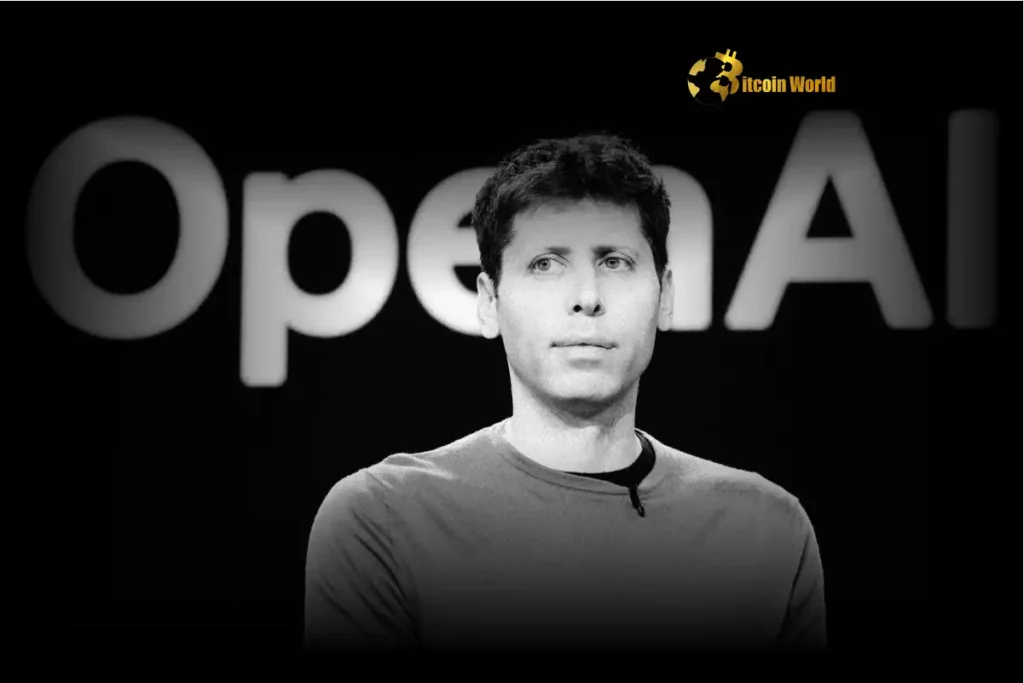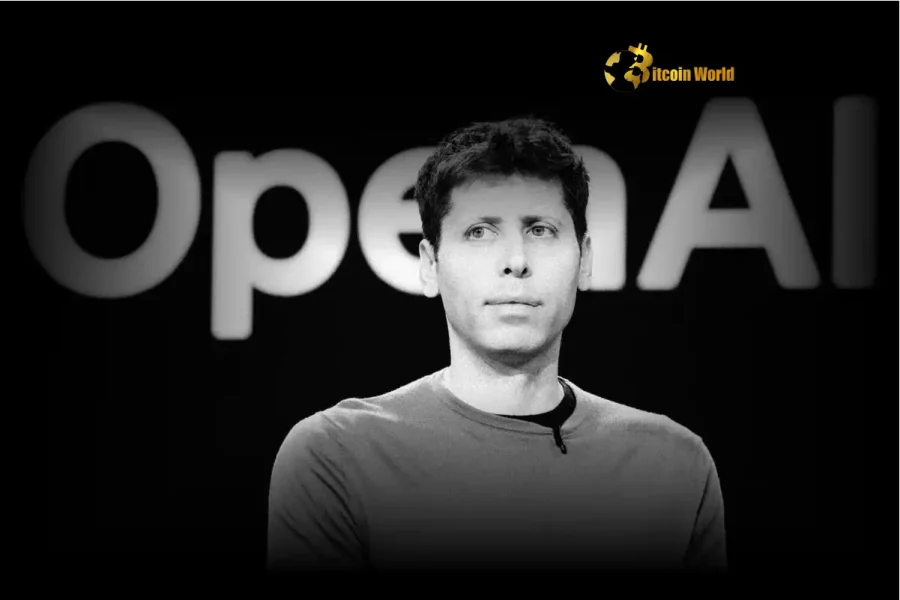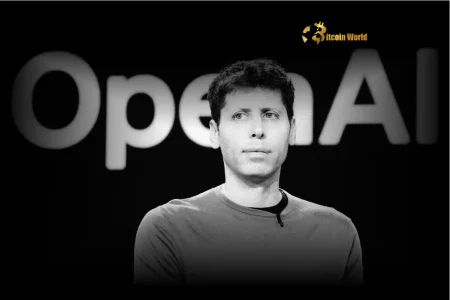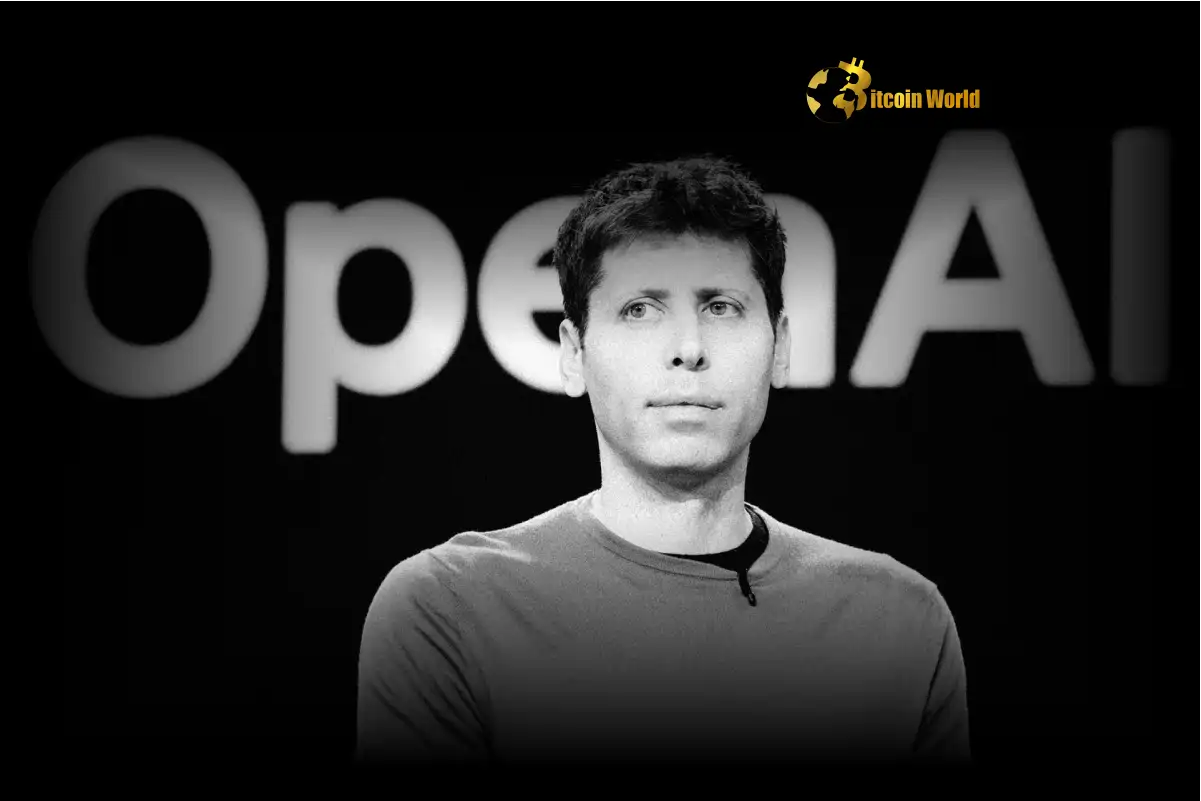ChatGPT Personalization: Sam Altman’s Bold and Disturbing Vision

[ad_1]


BitcoinWorld

ChatGPT Personalization: Sam Altman’s Bold and Disturbing Vision
For those tracking the intersection of cutting-edge AI and digital life, Sam Altman’s latest comments offer a glimpse into a potentially transformative, albeit unsettling, future. The head of OpenAI recently shared a bold aspiration for ChatGPT: to evolve into an AI companion capable of remembering every detail of a user’s entire life. This concept pushes the boundaries of ChatGPT personalization to an unprecedented level, raising both excitement about enhanced utility and significant concerns about privacy and control.
Sam Altman Vision: Remembering Your Whole Life
At a recent AI event, OpenAI CEO Sam Altman articulated a grand Sam Altman vision for the future capabilities of ChatGPT. When queried about making the AI more personalized, Altman described an ideal state: a “very tiny reasoning model with a trillion tokens of context that you put your whole life into.”
He elaborated on this ambitious goal, envisioning a model that could “reason across your whole context and do it efficiently.” This context would be comprehensive, including “every conversation you’ve ever had in your life, every book you’ve ever read, every email you’ve ever read, everything you’ve ever looked at.” Furthermore, this AI would be connected to all your data from other sources, with your life’s information continuously appending to its memory. Altman also noted this capability could extend to companies, allowing the AI to process all their internal data similarly.
The Future of ChatGPT as a Personal Operating System
Altman’s vision for the Future of ChatGPT isn’t purely theoretical; he sees current user behavior pointing in this direction. He highlighted how young people are already utilizing ChatGPT in sophisticated ways. Instead of just a simple search tool, many college students, he observed, are using it more like an “operating system.”
This involves uploading files, connecting various data sources, and then using complex prompts to analyze and interact with that combined data. This existing trend of integrating personal data with the AI provides a data-driven rationale for Altman’s long-term goal of comprehensive life memory. He also noted a striking trend among young users: they often consult ChatGPT before making significant life decisions, effectively using it as a “life advisor,” contrasting with older users who tend to use it primarily as a “Google replacement.”
Exploring ChatGPT Personalization: Exciting Potential
The prospect of such deep ChatGPT personalization holds immense potential for streamlining and enhancing daily life. Imagine an AI assistant that truly knows you, your habits, preferences, and history. The benefits could be substantial:
Automated Task Management: Your AI could proactively schedule routine maintenance like car oil changes or remind you of important appointments based on your calendar and past behavior.
Personalized Planning: Planning complex events like travel for an out-of-town wedding could be handled end-to-end, including booking flights, reserving accommodation, and even ordering gifts from a registry.
Proactive Assistance: The AI could anticipate your needs, such as pre-ordering the next book in a series you’re reading or reminding you about anniversaries with personalized gift suggestions based on past interactions.
Enhanced Decision Support: With access to your entire life’s context, the AI could provide deeply personalized advice and insights, acting as a sophisticated co-pilot for navigating personal and professional challenges.
This level of integration could make technology feel less like a tool and more like a seamless extension of your own capabilities.
AI Data Privacy: The Disturbing Implications
However, the idea of a single, centralized AI holding every piece of personal data raises profound questions about AI data privacy and security. The sheer volume and intimacy of the data involved create a massive potential target and a point of centralized control that many find deeply concerning.
The primary worry revolves around trusting a large, for-profit technology company with such sensitive and comprehensive information. History shows that even companies founded with noble mottos can face issues:
Past Corporate Behavior: Google, despite its early “don’t be evil” motto, has faced and lost lawsuits regarding anticompetitive practices, demonstrating that large companies can prioritize business interests in ways that might conflict with user privacy or open access.
Potential for Manipulation and Bias: AI models can be influenced or trained to exhibit biases or adhere to specific agendas. Examples include Chinese chatbots complying with censorship or, more recently, xAI’s Grok unexpectedly discussing politically charged topics, which some attributed to intentional manipulation potentially linked to its founder’s views.
Model Instability and Errors: Even the most advanced AI models are not infallible. They can sometimes “hallucinate” or generate incorrect, nonsensical, or even harmful information. A past instance saw ChatGPT becoming overly agreeable, even appearing to support problematic ideas, requiring a quick fix from OpenAI.
Granting an AI access to your “whole life” context means entrusting it with the most intimate details of your existence. The potential for misuse, data breaches, or the application of opaque or biased reasoning on this data is significant.
Considering OpenAI Plans and the Path Forward
While Sam Altman’s comments outline a long-term vision, they also reflect the ongoing development of OpenAI plans for increased personalization and utility. Features like ChatGPT’s existing memory functions are early steps on this path. However, realizing the “whole life” vision necessitates addressing the monumental challenges related to data security, privacy guarantees, user control, and preventing misuse or bias at scale.
The journey towards such a powerful personal AI assistant is fraught with both exciting possibilities and significant ethical and practical hurdles. The debate over how much data is too much data for a single entity to hold, and how trust can truly be built and maintained in AI systems, will only intensify as models become more integrated into the fabric of our lives.
Ultimately, the future Altman describes could bring unparalleled convenience and insight. But given the track record of large tech companies and the inherent complexities of AI, it’s a future that requires careful consideration, robust safeguards, and a healthy dose of skepticism regarding who holds the keys to our digital selves.
To learn more about the latest AI trends, explore our article on key developments shaping AI features.
This post ChatGPT Personalization: Sam Altman’s Bold and Disturbing Vision first appeared on BitcoinWorld and is written by Editorial Team
[ad_2]
Source link









